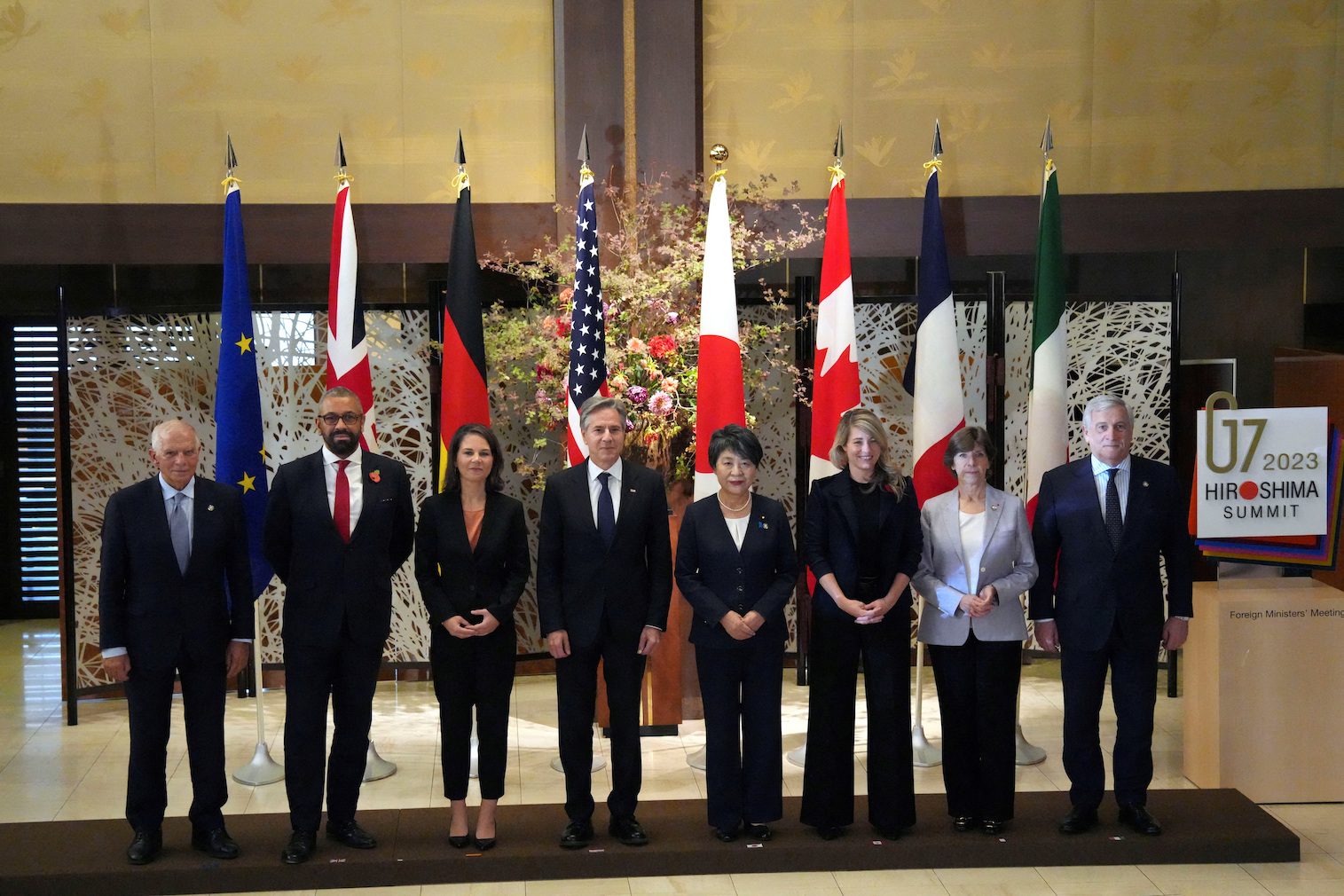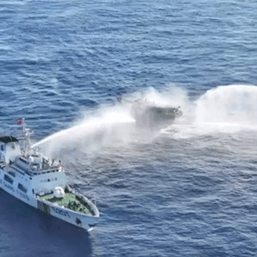SUMMARY
This is AI generated summarization, which may have errors. For context, always refer to the full article.

BEIJING, China – China expressed strong dissatisfaction with China-related comments made by G7 foreign ministers and urged the bloc to stop inciting confrontation, its embassy in Japan said in a statement on Thursday, November 9.
A two-day G7 foreign minister meeting held in Tokyo ended on Wednesday and mainly called for humanitarian pauses in the Israel-Hamas war to allow in aid and help the release of hostages.
In a joint statement, the G7 nations also urged China to address its non-market policies, not to assist Russia in its war against Ukraine, to keep the peace and stability across the Taiwan Strait, and to allow a high level of autonomy for Hong Kong.
“China will resolutely counter any smear campaigns from external forces,” the embassy said, adding it strongly protested against other countries’ intentions to curb China with regards to Taiwan.
President Tsai Ing-wen, of the democratically governed Taiwan island, said she would continue to work with G7 members toward a free and open Indo Pacific.
Critical comments on Taiwan and Hong Kong have long riled Beijing, which considers such criticism as outside interference in its domestic affairs.
Democratically governed Taiwan, which China considers as part of its territory, is the most sensitive issue. Taiwan rejects Beijing’s claim.
Some Western nations have also regularly reminded Beijing to better protect Hong Kong’s democratic principles, freedoms and autonomy, which they say have weakened after the implementation of a national security law in 2020.
Hong Kong returned from British to Chinese rule in 1997 with the guarantee its freedoms would be protected under a “one country, two systems” formula for at least 50 years. – Rappler.com
Add a comment
How does this make you feel?






![[Hindi ito Marites] Japan: From enemy to bestie](https://www.rappler.com/tachyon/2024/07/Hindi-ito-Marites-TC-ls-7.jpg?resize=257%2C257&crop=415px%2C0px%2C1080px%2C1080px)


![[Rappler’s Best] America](https://www.rappler.com/tachyon/2024/07/rapplers-best-america.jpg?resize=257%2C257&crop=458px%2C0px%2C1080px%2C1080px)
There are no comments yet. Add your comment to start the conversation.